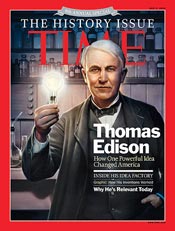There are about 250 million cars on the road, and if they behaved differently, that would mean some significant environmental benefits.
Waze, an Israeli start-up, recently acquired by Google for an estimated $1 billion, is an app that helps drivers avoid traffic jams-thereby saving time and fuel costs; and probably avoiding driver stress and anxiety.
At the University of Toronto, research is showing how artificial intelligence techniques can make traffic lights smart, self-learning from traffic pattern, and thereby allow traffic to move more smoothly on the streets. The work thus far has shown such intelligence has reduced travel times by 25%; and lowered carbon-dioxide emissions by 30%-and all that with only 59 traffic signals equipped for intelligent processing.
We can think of this as the emergence of the “smart road”, how we maximize the efficiency of moving along the roadways. This is analogous to what we know as the “smart grid”, the ability to move electricity cleanly, reliably, and efficiently along the pathways of electric utility systems.
How about the possibility of road trains…cars, trucks, and other vehicles linked together to travel a major arterial roadway? Maybe a professional driver is the “engineer” of this train while the other drivers simply sit there in their vehicle and enjoy the ride, read, or maybe conference call en route. Such trains have been tested in Europe at speeds of 55 mph, with measurable environmental benefits- better fuel economy because of better aerodynamics (i.e. reduced drag on individual vehicles).
What about car-sharing programs where drivers can locate unused cars in their area and rent them to move around? Whip out that smart phone, locate a dormant vehicle, sign-up to use it, unlock it via a special code, and off you go. Drop it off when done at a car-share station and you are done. Why own cars when you can rent one as needed. Keep this in mind, you only occupy your car a mere 4% of the day-if that. Think what it costs to own, maintain, and insure a car. This might be a very viable option for urban dwellers.
What you ask may be coming next? Researchers are working on driverless cars, electric vehicles that feed excess battery power back into the grid during utility emergencies, swap-out batteries for electric vehicles so battery charging time-outs are bypassed for long-distance travelers, and much more!
Editor’s Deep Dive
- http://www.sartre-project.eu/
en/Sidor/default.aspx - http://individual.utoronto.ca/
klyons/files/INF1003-smart- transportation-case.pdf - http://www.waze.com/
 Thomas Edison said … “Many of life’s failures are experienced by people who did not realize how close they were to success when they gave up.”
Thomas Edison said … “Many of life’s failures are experienced by people who did not realize how close they were to success when they gave up.”
Time ® is a registered trademark of Time Inc.




